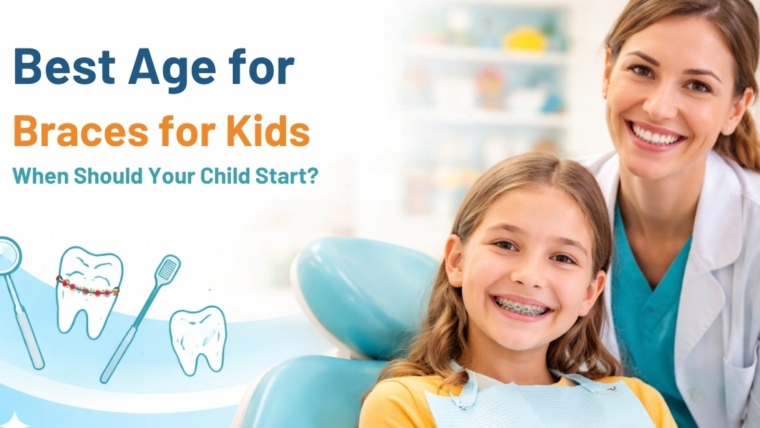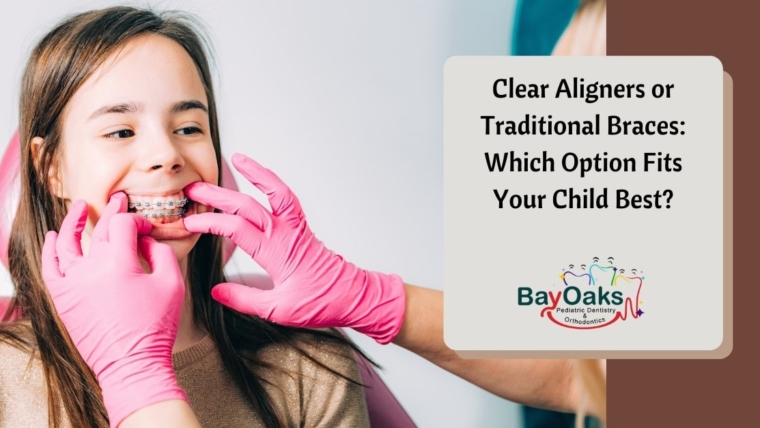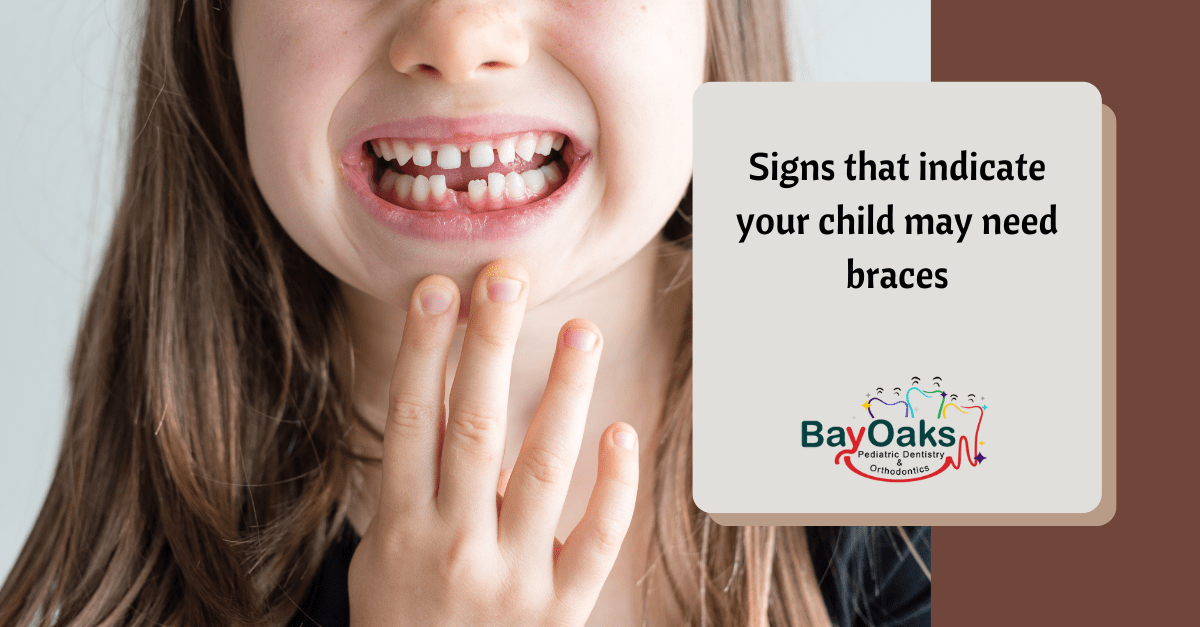
Signs that indicate your child may need braces
Signs that indicate your child may need braces
It is important for parents to ensure that their child’s health and well-being is a priority in their lives. Parents more often than not tend to overlook the dental health of their children. Parents are generally unsure whether their children really need braces or if their misaligned teeth will straighten naturally over time. It is important to understand that Orthodontic treatment isn’t only about aesthetics, it plays a critical role in the proper development of the jaw, bite alignment, and overall oral health of a child. This is the prime reason why it is crucial to consult the best pediatric dentist to assess your child’s dental needs and to determine if early intervention is necessary.
Here are five key signs that will help figure out if a child needs braces:
1. Crowded or Overlapping Teeth
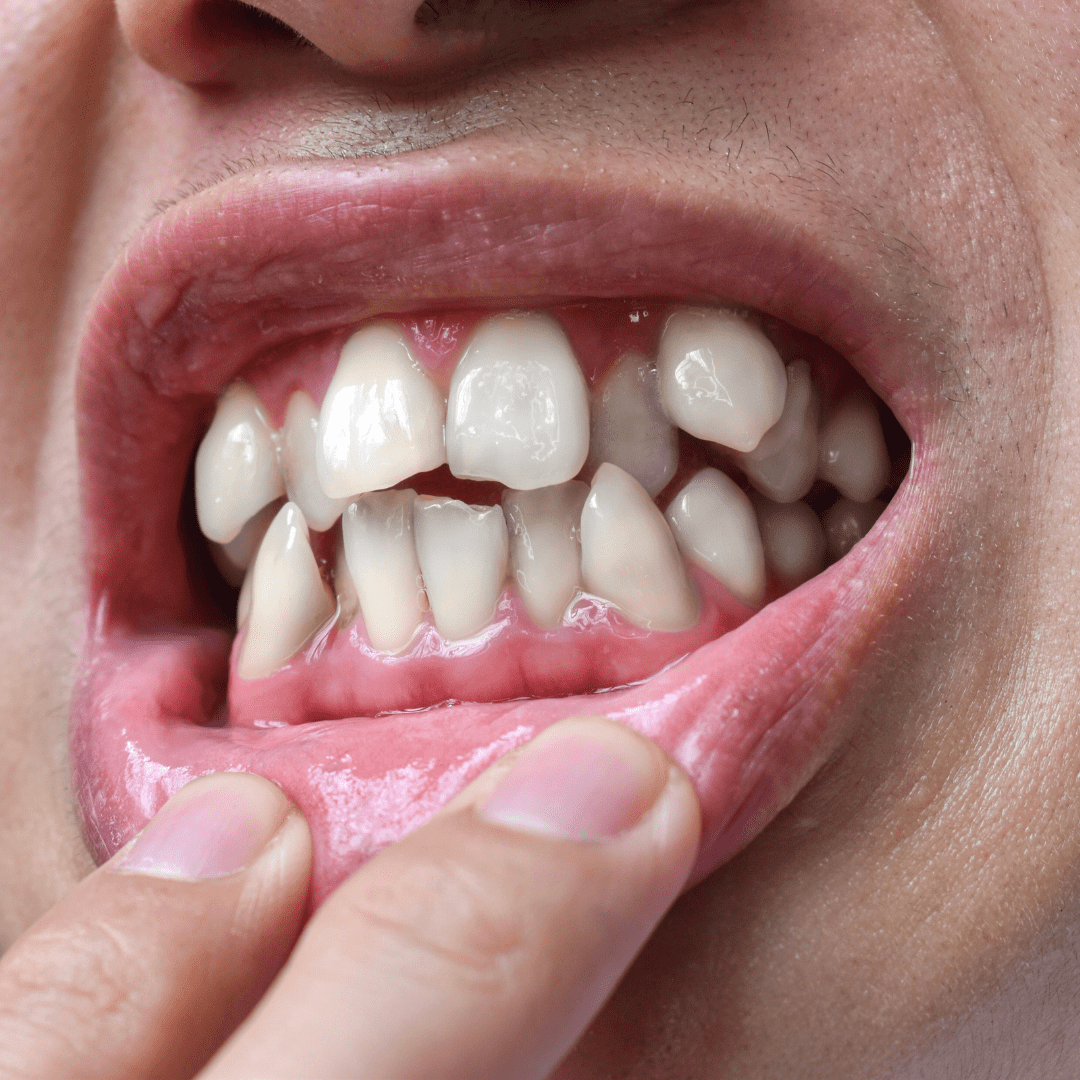
Overcrowding teeth is one of the most common indicators that a child may need braces. When the jaw of a child is not large enough to accommodate all their teeth the child’s teeth appear to be overlapping or growing too close together. Overlapping teeth can make it difficult to brush and floss properly, leading to the risk of cavities, plaque buildup, and gum disease. Thankfully, all of this can be corrected with the help of orthodontic treatment. A good pediatric dentist can help create space and align the teeth properly, reducing future dental complications.
2. Difficulty Chewing or Biting
Is your child having any difficulty while chewing food or biting on fruits, sandwiches or any other food? The cause could be misaligned teeth. Malocclusion (bad bite) does make it harder for children to chew their food properly, leading to digestive problems. Another indication of misaligned teeth is when your child bites the inside of their cheeks or tongue while eating. Teeth that are not aligned correctly cause multiple issues and need urgent orthodontic attention.

3. Prolonged Thumb Sucking or Pacifier Use

Young children often indulge in in thumb sucking or over dependence on pacifiers. While these are common soothing behaviors for infants and toddlers, prolonged continuation of these habits can negatively impact dental development. Continued thumb sucking or using a pacifier beyond age four, may cause problems such as an open bite or protruding front teeth. These habits exert pressure on the developing jaw, altering the natural alignment of teeth. It is advisable to have your child’s bite evaluated by an orthodontist if your child has had a persistent thumb-sucking habit. This is to determine if braces are needed to correct any resulting misalignment.
4. Jaw Misalignment or Frequent Jaw Pain
Symptoms of a misaligned bite or Temporomandibular Joint (TMJ) issues include your child’s jaw make clicking or popping sounds or if they frequently complain about jaw pain or headaches. Strain on the jaw muscles and joints can cause discomfort if the upper and lower jaws do not align properly. Jaw misalignment could also contribute to uneven tooth wear and speech difficulties. Orthodontic treatments, including braces, can help realign the bite and reduce stress on the jaw, improving overall function and comfort.

5. Early or Delayed Loss of Baby Teeth
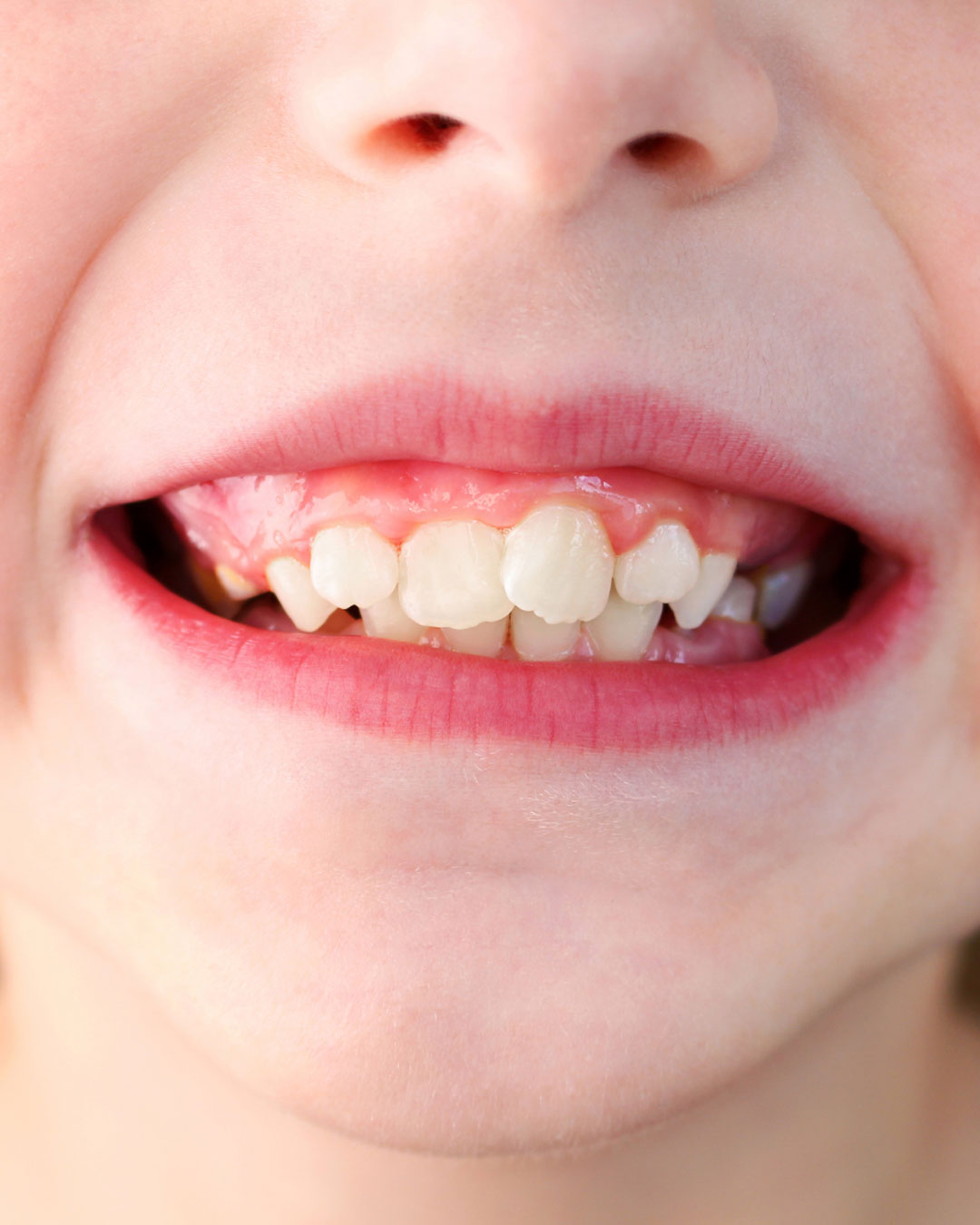
A child’s dental development maybe be majorly affected if there is a significant delay or early loss of baby teeth. Losing baby teeth too early due to decay or injury, may result in surrounding teeth shifting into empty spaces, that could consequently lead to misalignment. Conversely, the emergence of permanent teeth can be blocked if baby teeth do not fall out on time, potentially causing crowding or impaction.
An orthodontic consultation can help determine whether braces or other interventions are necessary to guide proper tooth development if your child’s baby teeth are falling out too early or too late.
When to Bring Your Child to an Orthodontist?
The American Association of Orthodontists suggests that children receive their initial orthodontic consultation at age 7. Even if your child’s teeth look perfectly straight, early assessments can identify concealed orthodontic problems that can exacerbate over time. Treating these issues early tends to provide easier and more desirable treatment results.
Advantages of Early Orthodontic Treatment
Prevents severe dental complications: Intervention early on can diminish the necessity for more advanced treatments such as tooth removal or jaw surgery down the road.
Enhances speech and enunciation: Certain orthodontic issues can impact speech, creating an inability to clearly pronounce specific words.
Increases self-esteem: A beautiful smile can increase a child’s confidence level and social relationships.
Increases oral hygiene: Straighter teeth are simpler to clean, which minimizes the occurrence of cavities and gum disease.
Supports normal jaw development: Correct alignment ensures well-balanced jaw growth and bite function.

What If Your Child Does Not Need Braces?
Not all children will need braces. Some minor misalignments will not affect their oral function or health. If an orthodontist concludes that treatment is not needed, they might prescribe regular monitoring to make sure no issues arise as your child ages. Preventive orthodontic appliances, like retainers, might be prescribed in place of braces in other instances.
How to Prepare Your Child for Braces
If your child does need braces, it is important to help them feel comfortable with the process.
Here are some tips:
Talk about the benefits: Explain how braces will improve their smile and overall health.
Encourage proper oral hygiene: Teach your child how to brush and floss effectively with braces to prevent cavities.
Make dietary plans: Avoid some foods, like sticky sweets and hard foods, to ensure that the braces are not damaged.
Reassure them: Most children wear braces, and orthodontics has come a long way to make treatment easier than ever.
Making the decision about whether your child requires braces can be daunting, but knowing the telltale signs can make the process smoother. Crowded teeth, problem chewing, jaw malalignment, extended thumb-sucking, and abnormal baby tooth loss are all signs that an orthodontic visit is warranted. Early treatment can avoid more complicated dental complications and establish your child for a lifetime of healthy, confident smiles.
If you think your child needs braces, don’t wait to make an appointment with an orthodontist. A professional assessment can bring clarity and reassurance, and your child will receive the best possible treatment for their developing smile. For top-notch care, visit the top pediatric dentist in Clear Lake City, Houston, TX, to provide your child with the best dental care.

